interview by Michael McCarthy
So far, the first and only time I’ve seen Quiet Riot live was in ’93 or ’94 when they were promoting the album Terrified, a record I’d still recommend to fans of the band’s early albums. The show was at an underground club – literally, it was a small basement level joint in Chelmsford, MA – but I was blown away. There were probably only 150 people in attendance, but the band performed like they were working a crowd of 10,000, just bursting with kinetic energy that was highly contagious as they blasted through hits like “Metal Health (Bang Your Head),” “C’mon Feel the Noize,” “Twilight Hotel” and “Party All Night,” as well as plenty of deep cuts and new songs.
Finally seeing Quiet Riot live was a dream come true and I was on cloud nine after the show. So, I decided to hang out with the small group gathered around outside their tour bus in hopes of meeting the band. After I’d been waiting nearly half an hour and was starting to think about leaving, figuring the band wasn’t coming out, the door to the bus opened and out walked Kevin Dubrow, Frankie Banali, Chuck Wright and Carlos Cavazo. If I was in the band, I might’ve been sour about the small attendance and opted to drown my sorrows instead of doing the meet and greet thing, but these guys were just thrilled that there were people who’d waited to meet them. I’d brought my Terrified booklet with me just in case I wound up meeting them and had them all sign it. The bass player on the album was Ken Hilary, who’d either just died or left the band – if he wasn’t deceased yet, it wouldn’t be long before he was taken way too prematurely – so I just asked Chuck to sign it anyway so he signed it over Ken’s photo. The next thing I knew, Carlos asked me if I had a joint. I did not, but another fan immediately produced one and several fans gathered around to smoke a joint with him. At that point, I’d never smoked so I talked to the other guys as they continued signing autographs.
A couple years later I was publishing a zine called Ant, The Only Cool Magazine That Bites and Quiet Riot was promoting the criminally under-rated Down to the Bone album so I decided to pursue an interview with Frankie Banali because in addition to Quiet Riot he was in another one of my favorite bands, W.A.S.P. The interview went well and I remember wishing I’d gotten to speak with him a bit longer. So, I always wished I could interview him again. Cut to 2017 – 22 years later – and we finally found the occasion to speak as the band is promoting their killer new album, Road Rage. You should be sure to check out the record below because it’s an ass kicking, instant classic.
FB: Hi Mike, how’s it going?
MM: Good, good. I actually interviewed you 22 years ago –
FB: – 22 years ago?
MM: Yeah, I was doing a zine called Ant, The Only Cool Magazine That Bites that was all about heavy metal and stuff.
FB: I remember that! I remember the magazine for sure.
MM: Oh, cool. At last, we speak again. So, first of all, where do you call home these days?
FB: Los Angeles. I’m originally from Queens, New York, but I’ve been out in L.A. for, my God, 40 years now. Yeah, so, I’m still the New York kid. I just happen to live out here in L.A.
MM: I lived in Glendale for a few years myself.
FB: Yes, very artistic part of town.
MM: Are you in L.A. itself or one of the suburbs?
FB: I’m in Granada Hills, which is essentially the 118 and the 405 freeways.
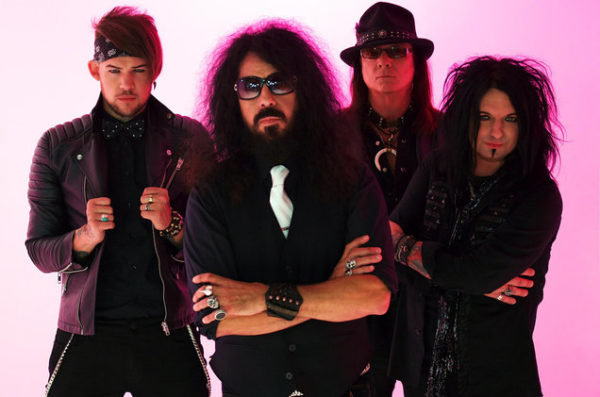
MM: Gotcha. So, your new album is your first on Frontiers. How did you connect with them?
FB: They had reached out to me in the past over time to do a Quiet Riot record and at those junctures, I really wasn’t prepared to go and do a record. So, when they approached me late in 2015 I decided that it was high time that we did another record. This record comes out 11 years after the last official record we did with Kevin and I’m really happy with the label. They’ve been really supportive of what I’ve been trying to do.
MM: Are you signed for just the one album or are you signed for multiple albums now?
FB: There’s a mutual option for a second record should they decide to offer and should I decide to accept it. So, we’ll see how it goes.
MM: Your current line-up features bassist Chuck Wright, who’s been in and out of the band a few times. When we spoke years ago you were telling me that he’s a pretty non-committal guy, that he does work here and there and kind of picks and chooses. At the time, he didn’t want to tour. Is he open to touring now?
FB: Oh, yeah. Listen, Chuck has been consistently involved. He’s been part of the Quiet Riot family for decades. Since 2004 when Kevin and I resurrected the band again he started playing with us then and that’s when Alex Grossi first came on board and it’s a whole different atmosphere now than some of the things that had happened in the past with Chuck. He has been completely committed and supportive and I give everybody in the band the space to do their own things on the side as long as Quiet Riot is the priority. So, everything is great and he’s a phenomenal bass player so he’s a valuable part of the Quiet Riot team.
MM: Yeah, I really like him. Is it my imagination or has Alex Grossi now been the guitarist in the band longer than anybody else was?
FB: I think that is pretty accurate. It would probably be close with Carlos because Carlos was involved in almost all the records. Not all of them, but almost all the records. But it’s pretty close. That’s a good point. I’m gonna have to do a little internal research and see if I can crown him king of the long running.
MM: Who produced Road Rage?
FB: I did. I did all the production on the record.
MM: Great. I love the sound. Now, Road Rage was originally recorded with Seann Nicols of Adler’s Appetite on vocals and was due to be released earlier this year, but then you ended up getting James Durbin. How did you come to get James in the band?
FB: How the whole thing started is when I finally did the record deal with Frontiers I needed to find a singer that was gonna be able to tour with Quiet Riot and also do the record and the first person I reached out to back then was James Durbin and James at the time had signed an agreement with a project in Las Vegas that was open-ended and so he wanted to come on board but he was contracted so he was unable to. So, the second person I reached out to was Jacob Bunton, who was with Adler’s Appetite and he’s a really great singer and a really good songwriter and he wanted to do the record but he didn’t want to tour. He wanted to stay in L.A. and stop touring. So, I ended up going with option number three, which ultimately did not work out after five shows. The band did a unanimous vote to dismiss him. Now all the music to all the songs had already been written by myself, Alex, Chuck and my songwriting partner Neil Citron so all the songs were already in house. At the same time, James was now available because his contract had expired from the other project he was doing. He came on board and never heard the first versions of the songs. He only heard just the music only that we had written that I sent to him. And he wrote all completely new lyrics and melodies from scratch, which had nothing to do with the previous versions. I let him put in all the vocal colors. He elevated the songs to the level that they should’ve been at in the first place. So, it’s a vast improvement.
MM: I read that the “Can’t Get Enough” video is your first one in 30 years. Is that true?
FB: It’s almost 30 years. The last video we did was in 1988 for a song called “Stay With Me Tonight.” But we hadn’t done a music video in 29 years so this is the first one in almost three decades.
MM: The last video you did, that was Paul Shortino on vocals?
FB: On the last video we did, that was correct.
MM: Did you ever try to get him back in the band since Kevin passed?
FB: No. I’m really supportive of the record with Paul Shortino and Sean McNabb was on bass for that record. That was a record for that time and I wanted to go in a different direction than rather to try to put a previous version of the band back together again. So, he was never a consideration.
MM: I believe it’s also been about 30 years since you released an album on vinyl. Is that the case?
FB: That is correct. The last record that came out on vinyl was the 1988 QR record, the one we just spoke about. So, this is the first vinyl record since that time. So, 30 years.
MM: Is that something you asked the label to do or was it something they just said they were going to do?
FB: In the agreement, there was always an option to do vinyl. We never spoke about it and I think what happened was once I delivered the final masters to the label Frontiers was so happy with how the record turned out that they got in touch with me and wanted to know if I would agree to exercise the vinyl option, which, of course, I was more than happy to do so.
MM: I’m excited about it. So, who plays harmonica on “Make A Way”?
FB: Yeah, that was James. It was really funny. When I sent him that song I said to him, try to imagine yourself in The Rolling Stones and that’s exactly what he went for and it was great. When he sent it to me, I think he was a little cautious about it. He said, “I put harmonica on it, but if you don’t like it you don’t have to use it.” And I called him right back and I said, “I love it.”
MM: Yeah, that’s a nice little touch to it. “Getaway” starts off kind of sounding like a Bollywood song. What inspired that?
FB: You know, I have a deep interest in all sorts of music and I especially like East Indian classical music. I love sitars and I actually play Tabla drums. So, I just wanted to have a little bit of that flavor and a little bit of that influence with the intro and then with the drone that happens throughout the song and at the very end of the song. Just a personal taste thing for me. That song for me, I would characterize it as being influenced by some of the music from the ’70s and even to some degree Aerosmith. You know, I like that kind of stuff.
MM: On “Wasted” it almost sounds like there’s two different singers, but that’s all James, right?
FB: That is all absolutely James. There’s only one singer on the Road Rage record. As a matter of fact, this is the first Quiet Riot record we’ve done where all the vocals were done by the lead singer. Normally, it would be the lead singer and Chuck. Sometimes I would add into the mix, but this is all James, top to bottom.
MM: I was wondering if you thought about doing an acoustic version of “The Road”? I think that would really be something special.
FB: Well, there is an acoustic version of the song “Knock Em Down” on the Japanese release. I had the option to do one acoustic song as a bonus track for the Japanese release and it would seem obvious that the one to do would be the ballad, but I wanted to go in a different direction. Because any ballad will work as an acoustic song. To me, it was more of a challenge to do another song that wasn’t a ballad. So, that’s why I opted to go with that that. As a matter of fact, I think it’s “Shame,” actually.
MM: When I was doing research for this interview I discovered that you released an album called Quiet Riot 10 with Jizzy Pearl on vocals on six tracks, but I couldn’t find it on Amazon or Spotify or anything. Howe does one get a hold of that?
FB: What happened with that is that I wanted to release a record at the time and I had written some songs with another writing partner. So, that’s where the six songs came from. At the time, it was still difficult for me to have the idea of recording a Quiet Riot record without Kevin, which is why I had put four live tracks so that Kevin would be represented in it. It was a self-financed record and I only released it for digital format and I got criticized by so many people. “If there’s no physical copies, I’m not interested.” “The only reason you put Kevin on the four live tracks is to use his name.” There was so much criticism, it wasn’t worth having it out there. So, I deleted all the files from all portals. So, the record now exists only on my drives in my archives.
MM: Do you think you might put it back out there sometime if the new album does really well?
I’m just wondering because I’m curious to hear it.
FB: Yeah, I don’t know. So many times in the past I’ve said never about certain things only for that to not be a realistic solution. So, while I can’t say that I won’t, at this point in time I’m more interested in the present and the future, rather than looking back. Is it possible? Anything is possible.
MM: I see a lot of the second period Quiet Riot albums like Down to the Bone and Guilty Pleasures selling for 40 bucks on Amazon used. Have you thought about reissuing those on your own label or something?
FB: Yeah. I mean, I’ve got the rights to do so. I think a lot of the problem is, though, that it costs money to format things. It costs money to manufacture. Everything that goes along with putting out a physical release and if you’re spending all that money to put out the physical release and there are more people downloading it illegally than there are buying it you have to say to yourself where is your money best spent? That’s not where it’s best spent.
MM: You know what I was wondering is how you guys never ended up on that CMC International label that was putting out all the metal bands in the mid ’90s. Did you ever speak with them?
FB: No. The course of events with Quiet Riot is we had a four record deal with CBS, which eventually became Sony then after the deal was over we did Terrified in ’93 with an independent label then Kevin and I released ourselves [and] we released Down to the Bone and signed a deal with Cleopatra and put out two records with them. Then we put out one other record with a boutique label and during that whole period of time Sony was still releasing greatest hits package after greatest hits package. CMC was never a factor in Quiet Riot.
MM: I saw on Amazon that there’s a clean version of Metal Health. How long has that existed?
FB: That there’s a what version?
MM: A clean version.
FB: I’m not sure I understand.
MM: A clean version where they take out all the swears.
FB: This is news to me. [Laughs]
MM: Yeah, they’ve got a clean version. I was going to ask you if the lyric to “Love’s A Bitch” was different or if they just take out the word bitch and it just goes “Love’s A ___”?
FB: I see what you mean. There were certain shows we were doing early on where they had asked Kevin to switch the lyric. Sometimes instead of singing bitch he would sing witch. More often than not, he just ignored it and sang the word bitch anyway.
MM: Like Jim Morrison did.
FB: Yeah, clean version, that’s very funny.
MM: There’s a Quiet Riot’s Greatest Hits on Amazon, but looking at the tracklisting it seems like it’s a repackaged version of Alive and Well. Is that the case or is it totally different recordings?
FB: Sony released it and it’s the same as Alive and Well?
MM: I don’t know if Sony released it, but it’s on there. It’s got 22 tracks.
FB: It might be the Cleopatra release.
MM: Yeah, maybe they repackaged it as a Greatest Hits.
FB: Yeah, it wouldn’t surprise me. That’s what labels do. They’ll repackage things over time. I can’t keep track of all the different repackaged releases that are out there for Quiet Riot. It’s just mind-boggling.
MM: I’ll tell you what’s mind-boggling. There’s a 5 album import collection on Amazon called Original Album Classics and it only costs 18 bucks.
FB: I’ll tell you why it only costs 18 dollars. Because it didn’t cost them anything. They’re stealing the music. I’ve seen some sites coming out of Europe – usually, Eastern European sources – where they have the complete Quiet Riot catalog for sale illegally for next to nothing but they’ve put together their own artwork and compilations. No approval from the band. No approval from anyone.
MM: Wow. That sucks.
FB: That’s the state of the music industry in the digital age. That’s why it’s so problematic for everyone.
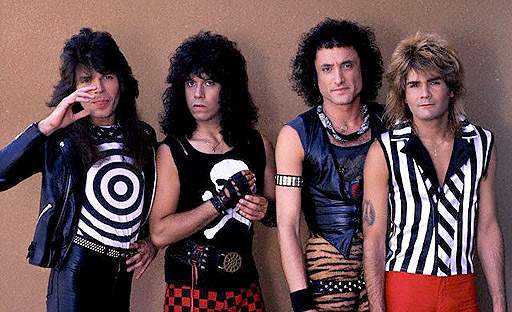
MM: So, are you guys out on the road right now?
FB: We’re constantly out on the road. We started the touring cycle this year in January and right now we have dates into February ’18. As a matter of fact, my agent, who’s been my agent and the agent for Quiet Riot since 1983, just sent me a contract for another date in 2018. So, we continue to tour.
MM: Do you know if you’ll be playing in Massachusetts or if you’ll be playing Mohegan Sun in Connecticut again?
FB: I hope we do the Wolf Den again because I love that room and the people at the Wolf Den are really great. We don’t have any plans at the moment. I think the closest we’re gonna be in the area is we’re gonna be up in Maine later on this year. But at this point in time there’s nothing in Mass.
MM: OK. I’ll try to get up to Maine then. What is the set list like right now? Are you doing many songs from the new album?
FB: Yeah, we’ve already added “Freak Flag” to the set and we’re about to add “Can’t Get Enough” and those will be the first two we feature in the set. Usually, the live set for Quiet Riot that I put together is mostly songs from the Metal Health record because, obviously, it was our biggest record. A few from Condition Critical. Some things from QR III. And there will be a song from Down to the Bone on any given night. So, it’s a great representative set.
MM: I really love the Down to the Bone album. Sometimes I think it might even be my favorite.
FB: That’s a great record. Kevin and I loved that record. Chuck Wright loves that record. Chuck played amazing on it. And it’s really a great record. Unfortunately, it came out in 1995 when nobody cared about Quiet Riot or that genre of music. But the record still stands the test of time.
MM: Do you know if Carlos and Kevin ever released anything when they were doing that band Heat?
FB: They didn’t release any recordings. I don’t even think they ever went into the studio to record anything. That was the interim period. That’s at the time when I had finished my initial work with W.A.S.P. and I was in a band called Heavy Bones and they were doing Heat and then in 1993 Kevin called me up and I came back on board and that’s when we did the Terrified record. But they didn’t do any official recordings. They didn’t release any product. And actually, it started being called Little Women and then it became Heat and then it became Quiet Riot.
MM: There’s a documentary, Quiet Riot: Well Now You’re Here, There’s No Way Back, which I really loved. You were highly involved in that, right?
FB: Not really. I was highly involved in the fact that I made my archives available to Regina Russell, the director of the film. So, I let her have complete control over the music in my archives. The home movies, all the footage, all the magazines and all of that. So, from that point of view, only in that I gave her complete access to the archives, myself and the band. I had nothing to do with making the movie. She was the one who made the film. And as a matter of fact, I really didn’t watch the dailies. I didn’t see the movie until I saw the final cut. I didn’t want to be involved and I didn’t want to edit anything out of the film. There’s things in the movie that, to me, are hysterically funny. Some things are incredibly sad. Some things are very uncomfortable, but if I had taken a part in making the film maybe it wouldn’t have been as transparent as it is. I stayed away so that it would be transparent.
MM: Were you happy with the end result?
FB: I am. It’s always strange to watch a huge piece of your professional career and personal life go on a movie screen. So, that’s something. I don’t know how many people experience that. But it was interesting in some ways. In some ways, it closed a lot of books that remained open. And in a lot of ways, it put things in my life in perspective.
RANDOM QUESTIONS:
MM: What is a fake name you’ve used when checking into hotels?
FB: I have used Peppy Roni. I’ve used Ray Gun. And I have used Ben Dover.
MM: Cool, cool. What was the first concert you ever attended?
FB: First concert I ever attended? Boy, that’s…
MM: Or you can just tell me a couple early ones you went to.
FB: Well, I can tell you that probably the most meaningful one that I ever saw – you’re talking about rock concerts, correct?
MM: Sure.
FB: The most meaningful one I got to see was Led Zeppelin in 1969. The last two shows of the first leg of their U.S. tour.
MM: Nice. What are three things from your bucket list that you have yet to do?
FB: Um, play with Jimmy Page. Visit India. And spend a long holiday traveling Japan.
MM: If you could resurrect any one musician from the dead, who would you bring back?
FB: Kevin DuBrow.
MM: Sure. What is the most useful piece of music-related advice you’ve ever been given and who gave it to you?
FB: My first and only drum teacher. His name was Ernie Grace and he said to me, “Play it. Play it right. And if somebody tells you you didn’t play it right, tell them to F off.”
Extra special thanks to Frankie for taking the time to do the interview and to Jon Freeman of Freeman Promotions for setting it up!

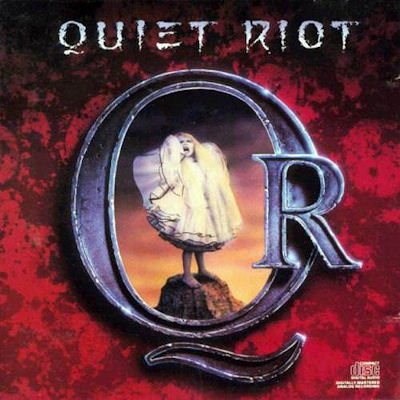
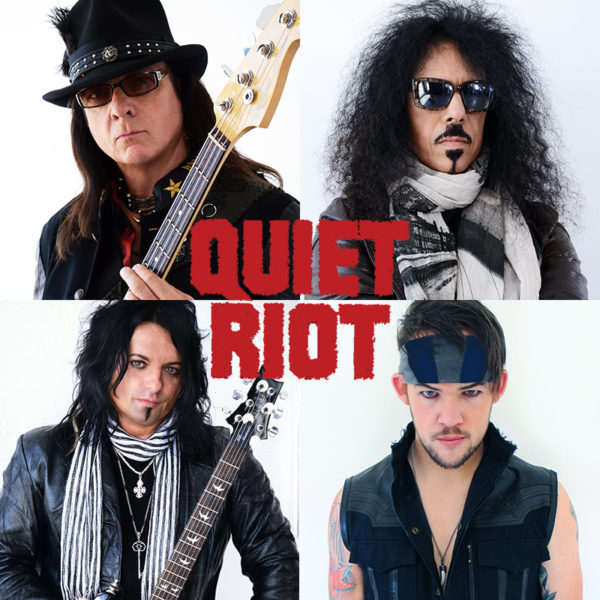
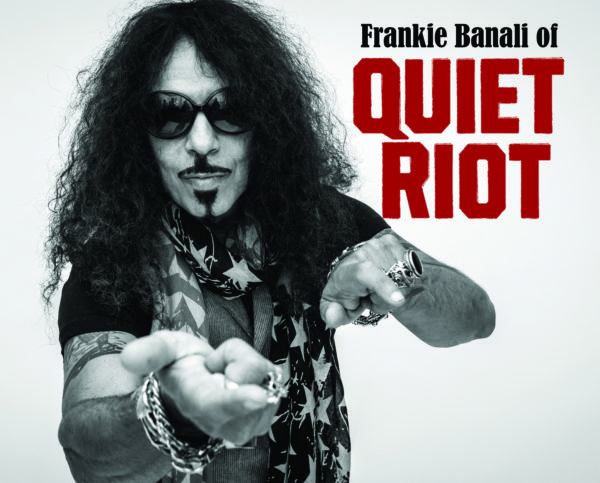
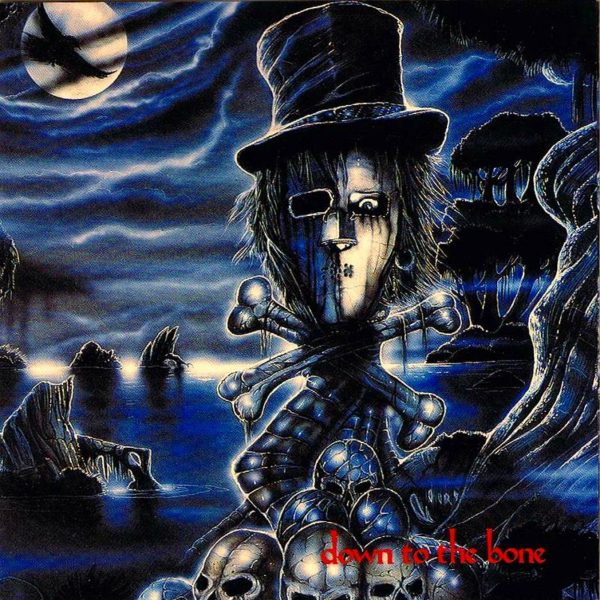

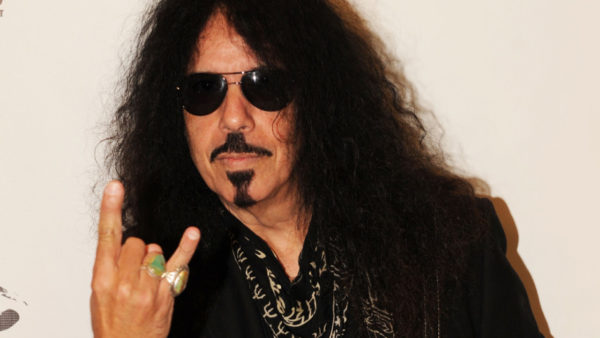

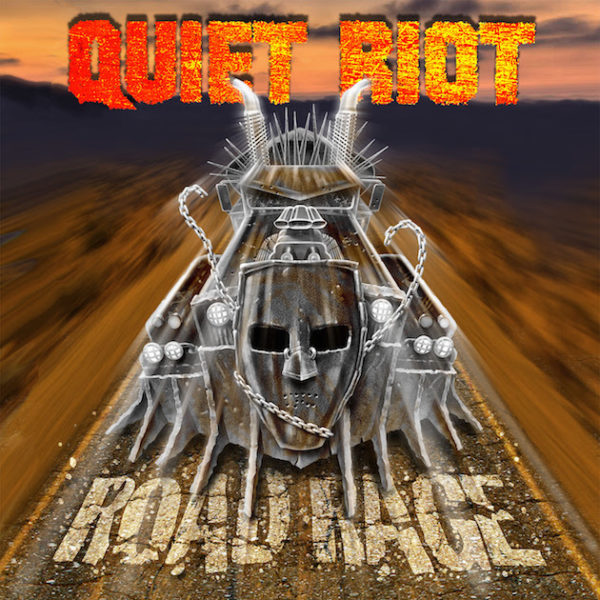
Leave a Reply